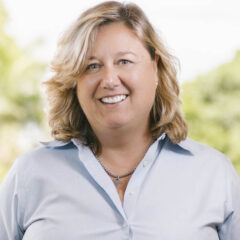Jennifer Lesh B.S., M.S., Ph.D.
Associate Professor, Exceptional Student Education

Contact
| [email protected] | |
| Phone | +1 561-237-7082 |
| Department | College of Education |
| Location | Green Center North end |
Professional profile
Jennifer Lesh received her Ph.D. from Barry University in Leadership with an emphasis in Special Education. Lesh comes to Lynn University from the School District of Palm Beach County where she has held several positions within the Exceptional Student Education field. She has over 20 years of special education practical experience ranging from classroom teacher and specialist, to dean of students at the high school level. She has also been an adjunct professor for both Lynn and Barry University. She has vast experience with cross-cultural teaching as she has taught for Barry University in their Caribbean/Bahamas Cohorts as well as in urban K-12 settings in Florida, New Jersey, and Chicago. Lesh has presented topics within the special education realm extensively at conferences and professional development workshops at the local, state, and national level.
While a doctoral student Professor Lesh was a recipient of the Council for Exceptional Children (CEC) Teacher Education Division's Scholarship to CEC's Children and Youth Action Network Institute. Lesh is very active in CEC at the local, state, and national/international level. She has been CEC president at the local and state level, and is currently the Chairperson of the National/International CEC Representative Assembly. In addition to CEC, Lesh is also a member of Phi Delta Kappa International, Association and Supervision of Curriculum, and American Educational Research Association.
Education
- B.S., Indiana University
- M.S., Barry University
- Ph.D., Barry University
Teaching philosophy
Building relationships and facilitating collaborative evidence-based practices is the foundation to a positive instructional experience. Differentiating those practices, advocating for inclusion, and infusing technology enhances the practical knowledge. Equipped with the theory, evidence, and the practical pedagogy to go forth and make a difference in the lives of those who do not have a voice or their voice is silenced will transform our global society.
Teaching specialties
- Behavioral theory and practice
- Instruction of students at-risk of school failure
- Multi-tiered system of supports
- Response to intervention
- Organizational change pedagogical methods
- Teacher leaders
- Mentors teacher retention
- Transition